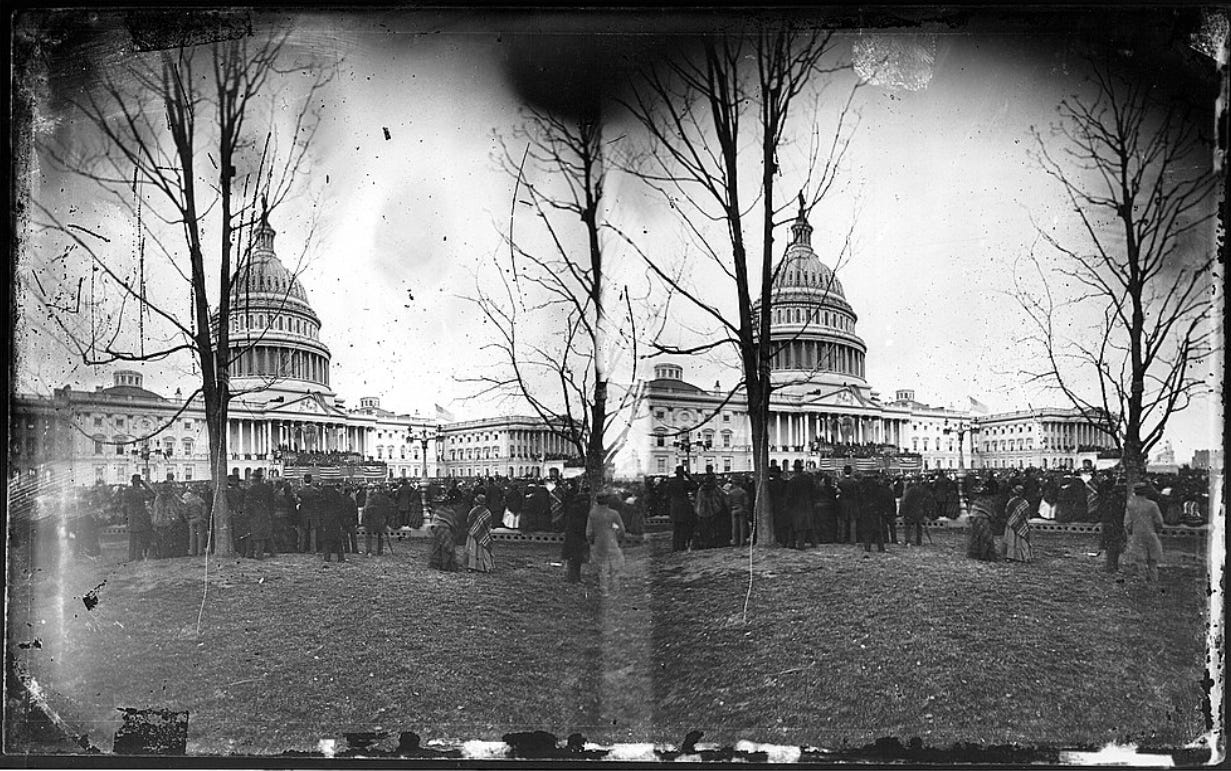Voting is a fundamentally mystical phenomenon. Even in church you pray to God with other people. When I visit the ballot box later today, I’ll be communing with the public alone. The writer Osita Nwanevu, reacting to Trump aide Stephen Miller’s musings on the mystique of the British monarchy during the accession of King Charles in 2022, noted that “the mystique of the monarchy doesn’t really hold a candle, though, to the mystique of democracy”:
To be a lowercase-d democrat, Nwanevu wrote, “is to believe that grace, dignity, beauty, and the sublime are best found closer to ground.” Sublimity is not something associated much with popular government these days. Its champions around the world, including the U.S., are playing defense against subverted judiciaries, suppressed and divided civil society, toadyish state and party media, and nationalist mobs mobilized by illiberal autocrats. What’s troubling about the authoritarian rot is that many liberal democracies aren’t even losing the argument against a competitive system like communism. Liberal democracy has been losing the argument against itself just fine. Although the scholars of comparative democracy have been the ground troops providing more the analytical hows and whats of the democratic recession, the book I’ve been obsessed with in recent years is Francis Fukuyama’s odd 1992 political philosophy tract “The End of History.” As the Soviet Union collapsed, Fukuyama rehashed Hegel, Nietzsche, Leo Strauss and Alexandre Kojève to argue — persuasively, in my opinion — that liberal democracy’s final enemy might be boredom. Specifically, a very gendered kind of boredom. Here, Fukuyama’s classically sexist use of “man” as a blanket synonym for “humanity” has aged into haunting accuracy:
Democracies aren’t supposed to have heroes. Democracies are the product of heroic eras. After you’ve answered the major questions of legal equality and political recognition, the rest is just conflict resolution. Well, it turns out that some of the governed sometimes don’t want to consent to undergoing marriage counseling for the sake of the relationship. One of the defining moments of reactionary politics under democracy was a mob breaking into the U.S. Capitol on January 6, 2021, and then milling around on the Senate floor, not quite sure what to do after defeating the police. The wild antigovernment protest movements of the COVID-19 lockdown era around the world were marked by a similarly incoherent “diagonalism” against status-quo governance by the institutions that order political and economic life:
This is how one of the most pivotal elections of my lifetime, over whether to restore an authoritarian to office after he almost violently refused to leave it, is ending with a bunch of rightwingers talking about the government seizing and killing an internet-popular squirrel. What’s true about life in democracy is that every day is still a rebellion against the world, “a protest against an alien will that subjugates one's own, against the torment of heteronomy,” the brilliant and sensitive Austrian jurist Hans Kelsen wrote in 1929. “In the demand for freedom, nature itself rebels against society.” But what Kelsen was defending the fundamental boringness of fragile representative democracy in Weimar Germany as the form of government that maximizes the freedom against oppression for the most people. His were some of the careful and pristine defenses of the ballot and representation ever committed to paper, while pro-Nazi antisemites like Carl Schmitt viciously attacked liberal (and Jewish) voices like Kelsen’s as usurping the will of the mob. Schmitt, who remains an influential legal thinker for some reactionaries today, made one of the creepiest attacks on voting and diverse democracies I’ve ever read. It’s worth reading at length to understand what a coherent argument for the mob sounds like:
This is a doctor who thinks the patient is the disease. To stand against government by mob and the rule of blood requires belief in some more abstract and loving vision of the people. It requires toleration: of mess, difference, and most importantly, the boredom of the pew. These sorts of republics run on the ongoing belief in the equality of all those silent souls out there you’ll never meet nor fully understand, standing in ballot booths like yours, making their silent confessionals to the ballot-counters ministering to the flock. This kind of democracy is absolutely a faith. Its survival will always be something of a mystery. Matt Pearce is free today. But if you enjoyed this post, you can tell Matt Pearce that their writing is valuable by pledging a future subscription. You won't be charged unless they enable payments. |
